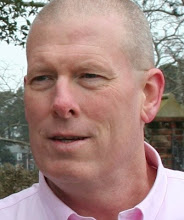Before I talk about the title, a summary of the weekend. Saturday was spent cycling on the bike and nature trails around Bozeman, watching
Kingdom of Heaven (best quote: “Mohammed says submit; Jesus says decide.” Is that the key difference between Islam and Christianity?), and working on the syllabus for my fall 2005 senior seminar on Constitutional Political Economy (CPE). Sunday, I visited St. James Episcopal Church, finished a novel, wrote this blog, and continued work on my CPE syllabus. Weather: wonderful for most of the time. Saturday was sunny and warm, perfect for outdoor activity because it wasn’t too hot; Sunday was also warm, but clouds have now moved in and the rain and chill they’ve predicted for the week is almost upon us.
Gordon Bigelow’s May 2005 article “Let There be Markets: The evangelical roots of economics” (
Harper’s) is a frustrating amalgamation of useful reminders, poor history, and moral highhandedness. Economics is, a Bigelow points out, contemporary theodicy, although few of his readers may know what that is! Unfortunately, the same can be said for all of social science since the early 1900s, as I’ve argued many times. But, as I said in a recent book review of
Economics as Religion (by Robert Nelson), there is a difference between saying that economics/social science is our modern way of explaining “God’s ways” (those things beyond the range of our own interests and foresight which impinge upon our actions) to humans in a society that is religiously neutral (my meaning of secular), and saying that economics/social science is a religion. Bigelow’s arguments that economics and religion have always gone hand-in-hand, and that “free-market ideology can be logically sustained only if it is based in a fiery religious conviction” raise the logical question as to whether every form of economic thinking has to be accompanied by a religious perspective. Does Bigelow himself have an implicit economic ideology/religious conviction that underlies his own social science? Are the 99% of all economists who agree that free trade is good basing their social science on a “fiery religious conviction”?
I raise these questions not to accuse Dr. Bigelow of hypocrisy, but simply to point out that his argument against the “unholy” alliance between evangelicals and free-marketers is a dangerous one because it can be turned around. Far better to avoid that terrain altogether: there be dragons.
On the positive side, Bigelow is right to assert that neoclassical economics has a notion of “unmediated selfhood” which marvels at markets as mathematical miracles (the famous Arrow – Debreu model, for example). He is right that markets are not natural phenomena; that human beings create them. And he is right that economics made a turn about the time of William Stanley Jevons that led to the neoclassical economics Bigelow righteously chastises. He is also right that the term “political economy” was dropped in favor of “economics,” in part, because the former term had come to be identified with “cruel disregard for human suffering.” However, most of the conclusions he draws from these truths are wrong. Fortunately, economics is not simply the product of its past and a new political economy, in a guise reminiscent of the classical economics of Smith, Malthus and Mill is on the rise.
What, then, does Bigelow miss?
First, he ignores the fact that the notion of the market as a spontaneous order was developed in the context of a non-evangelical theodicy (Adam Smith) and recovered in the 20th century in the context of evolutionary theory (Hayek). Secondly, he ignores his own lesson when he discusses the Irish potato famine: if markets are human inventions (and I agree with him that they are), then the Irish potato famine is not an illustration of “the incapacity of markets to run themselves” but rather an illustration of how markets can be poorly run by those who do not understand how they actually work or who do not think some people (in this case, the Irish) are capable of making exchange decisions themselves.
Thirdly, he misses the fact that neoclassical theory was not primarily an exercise in the justification of laissez-faire. It is no mistake that Pigou, with his theory of market failure that required government intervention, followed fast on the heels of Alfred Marshall, the greatest of the neoclassicals. If markets work only in the theoretical realm of the Arrow-Debreu model, then in the real world, the neoclassicist believed, they need benevolent, all-knowing social planners to fix them. Neoclassical economics took us a long way from ardent free-market thinking!
Fourthly, Bigelow ignores one of the reasons that economics and evangelicalism have always gotten along: both have notions of human nature that are simultaneously “fixed” and egalitarian. Evangelicals, of course, believe we are all subject to “original sin” – a radically egalitarian, even if not particularly positive, starting point. While Victorian moralists like Dickens and Carlyle could not believe that they were brothers to the black Jamaican, evangelicals believed they were. And so did the economists. Adam Smith’s observation that the (Irish) porter and the (Oxford) philosopher were the same at birth, and grew into their differences by specialization, put classical economics on the side of the angels, at least if we believe Carlyle, who called it the “dismal science” because it would have us believe that blacks were human, too. (See Levy and Peart on
"Secret History of the Dismal Science")
Finally, and perhaps most importantly, Bigelow ignores the fact that neoclassical economics has been on the wane for some time now. The most ardent defenders of free markets today, in America and elsewhere, are those who understand that markets are institutions, and that democratic political will is required to undertake the particular political actions (especially protection against the possibility of the state absconding with your property) that make them work well. The difference is that the new institutionalists know how important markets are not only on efficiency grounds, but also on social and moral grounds.

